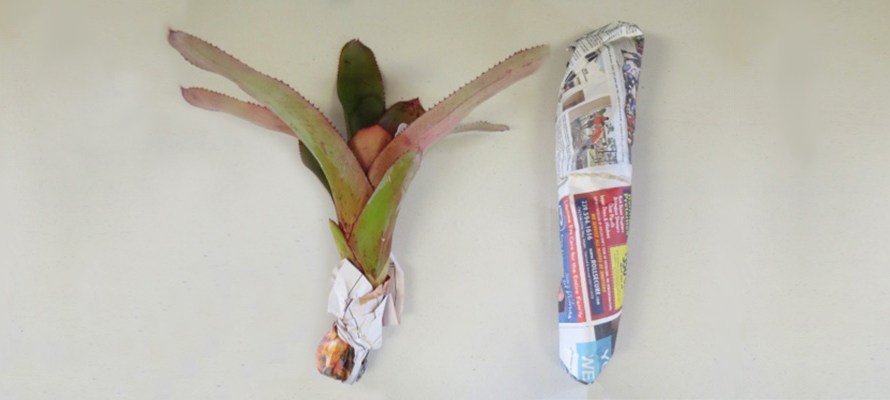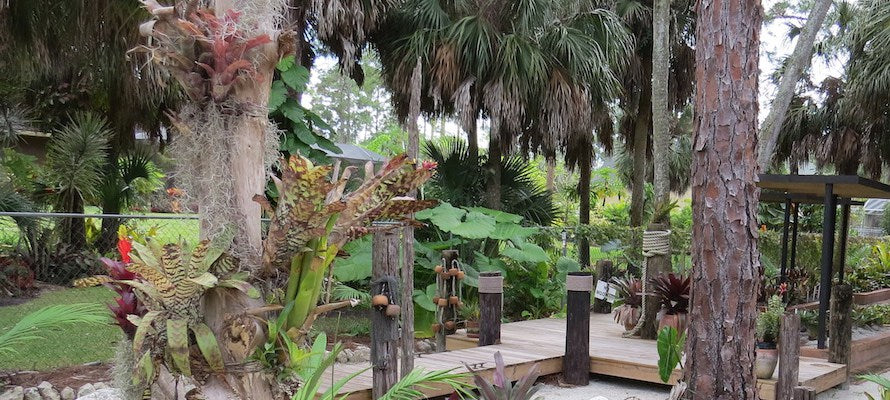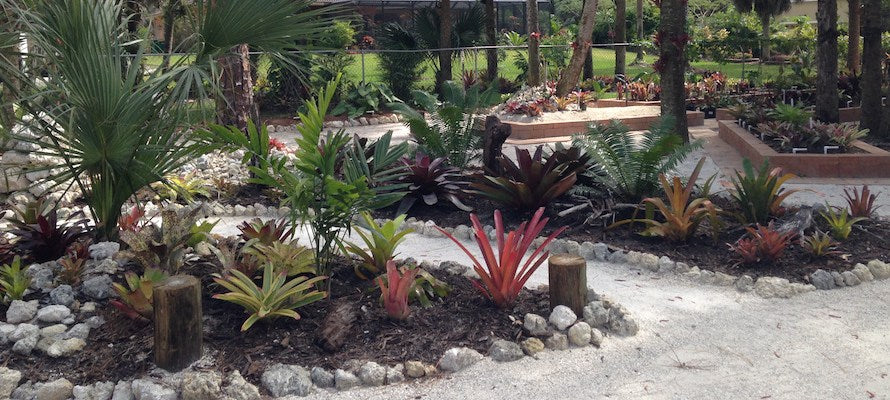Your Cart is Empty
Get Free Shipping on all orders $120 or more.

I often get requests for bromeliads that can handle full sun, either in the landscape or as a potted specimen in a full sun location. On the surface this seems to be a simple question, and simple questions usually have simple answers, right? Well in this case, this is a much more complex question than you would think. Full sun bromeliads are going to differ depending on the location they are in. For example, the intensity of the sun in Miami, FL is not the same as it is in Boston, MA. For that matter, it can even differ from Long Beach, CA to Palm Springs, CA.
Two variables that can highly influence a plants ability to withstand a full sun location are humidity and latitude. Higher humidity will enable a plant to withstand more direct sunlight, and therefore, a beach location may enable a plant to adapt to full sun while a desert location will burn the plants leaves until they wither and die. Likewise, lower latitude sunshine will be more intense than that in the higher latitudes, especially in winter.
Other factors that will come into play will be when the plant is to be placed in a full sun location. Moving the plant from a shady to full sun environment is never a good idea. Do it in steps, allowing it to get a little more light each week until it is in full sun. Also, moving your plant at a time of year when the sun is less intense will allow the plant to adjust with less shock or trauma.
Another factor is root system. Although most Bromeliads are epiphytes, healthy root systems play a tremendous role in how well a bromeliad will handle a full sun situation. That is one of the reasons why planting in early spring is better for adapting the plant, the plant will have time to develop a greater root system for the uptake of moisture and nutrients when stressed with full intense sun. Letting your plants pup in full sun will also create a plant that is ready to withstand the rigors of this environment by allowing slow adjustments as it grows better roots and stronger leaves.
Here is a list of full sun tolerant plants that was published by the Bromeliad Society of South Florida:
Aechmea eurycorymbus
Aechmea mexicana (also the albomarginated form)
Aechmea bracteata (all forms)
Aechmea mulfordii
Aechmea rubens
Aechmea chantinii (black form)
Aechmea ‘Samurai’
Alcantarea vinicolor (tougher than imperialis)
Alcantarea regina
Hohenbergia castellanosii
Portea petropolitana (both var. petropolitana and var. extensa, the more common one)
Aechmea pectinata
Aechmea ornata
Ananus bracteatus
Neoregelia compacta
Neoregelia macwilliamsii
Neoregelia marmorata
Quesnelia testudo
Quesnelia arvensis
Wittrockia superba
Aechmea recurvata var. ortgiesii
Neoregelia olens
Orthophytum gurkenii
Orthophytum navioides
Orthophytum burle-marxii
Most Dyckias and Hechtias (they’ll require more frequent watering).
The genus Pitcairnia is usually very sun-tolerant.
Aechmea callichroma
Aechmea mariae-reginae
Aechmea beeriana
Aechmea bromeliifolia
Aechmea aquilega
Aechmea castelnavii
Aechmea distichantha var. schlumbergeri
Aechmea lingulata
Aechmea phanerophlebia
Aechmea tocantina
Hohenbergia stellata
Neoregelia sarmentosa
Neoregelia tigrina
Neoregelia bahiana
xNeotanthus ‘Cardboard’
Portea leptantha
Orthophytum magalhaesii
Orthophytum maracasense
Orthophytum rubrum
View all of our full sun bromeliads for sale.

When a bromeliad is ordered on-line, it will either be taken as an offset from a mother plant, or it will be taken from a pot. Either way, it is possible that it has already started to grow roots.

Bromeliads are a type of plant called epiphytes, which means that they draw moisture from the air and don’t need to be in soil to survive. While their roots can draw water and nutrients, they typically serve as a plant’s ‘anchor’, attaching and holding it place.

Although mosquitoes are not a pest that can harm your bromeliads, they can become very annoying to everyone around them. Mosquitoes are currently a topic of conversation as common sense and the facts often give way to rumor and sensationalism.